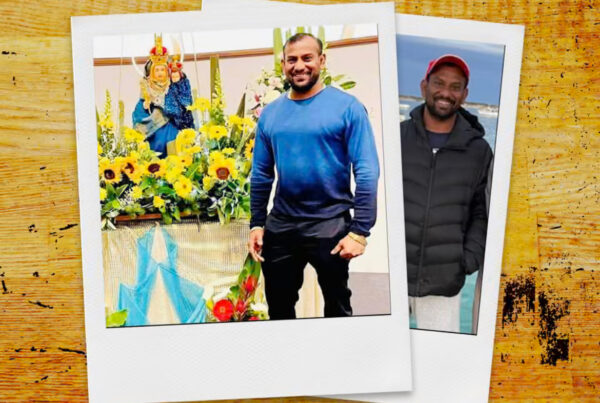This article was first published by Huffington Post.
Advocating for the better treatment of people seeking asylum in Australia can often be a demoralising task. Despite the countless allegations of abuse of people in detention, a large part of the Australian public seem content with the current system, and no matter how many tragic “refugee journeys” are told, the Australian public still thinks suspiciously of these asylum seekers and refugees. It’s as if the worse the situation gets, the more people turn away and stop caring. It’s strange that in a country as progressive as Australia, three word slogans and falsities can convince the public that cruelty is the best way to treat people. Why isn’t the public listening to the human rights lawyers, doctors, social workers and whistle-blowers? And why are people listening to conservative politicians, shock jocks, and racist political groups such as Reclaim Australia?
The other night I was told that we need to change the message.
Anat Shenker-Osorio, a renowned US messaging expert and cognitive linguist, and a group of Australian researchers have investigated the national debate regarding refugees and now they are talking about their findings in a series of talks called Refuge from Our Rhetoric. What they are saying is that our message is wrong.
They question why we repeat negative, politically conservative messages:
“To seek asylum is not illegal.”
“There is no queue.”
“They are not economic refugees.”
And propose that citing international law and theoretical human rights language doesn’t move people. Funny that, really.
What’s more, they believe the saviour mentality and practice of many supporters of refugees and people seeking asylum is ineffective and insulting as it perpetuates the assumption that these people are powerless. To quote Baqir Khan, a lecturer in Languages at RMIT and one of the speakers on the night:
“They don’t need our help. They just need us to get out of the way.”
They advise to use caution when using the terms asylum seeker or refugee, which can now carry derogatory connotations in Australia. We are talking about people and we should refer to them first and foremost as people: people who are seeking asylum.
What Anat does recommend is to personalise the conversation for people in Australia. It is easier to imprison someone who you are told is illegal; it is much harder to imprison someone when you know their story. It is much easier to ignore the silent and the faceless. That’s why we send people to distant isles and prevent information from leaving those isles.
I have never believed that people in Australia want to be cruel to people. I have never believed that people in Australia are happy to lock children up. I think Australians think of themselves as generous people and I think the large majority of Australia is persuadable. Public opinion is fluid; it can be shifted.
But I think many people in Australia are fatigued by the depressing state of affairs on our border. They are tired of being presented with one answer; they are tired of that answer being cruelty. They want a positive message that names solutions; they want an alternative; they want to be told what to do and how to be better.
It is an oft-repeated demand from the left side of the politics that we need to start a new conversation in Australia regarding people who seek asylum. So, why haven’t we changed it?
It is time to set our own message.
A message that taps into people’s kindness; a message that encourages people to care; a message that emphasises the wealth of potential that people seeking asylum bring, the potential to learn and to work and to contribute to Australian society. A message that demands a fair and effective processing system; that demands people are safe and treated with respect. A message that supports effective integration of people into our communities. A message that eliminates harm and creates good. A message that says these people don’t need our help: they need the opportunity our country can provide them to thrive.
I believe that many people in Australia want to help. I believe they want to be good neighbours. Let’s send them the message that they can be good people and good world citizens.


